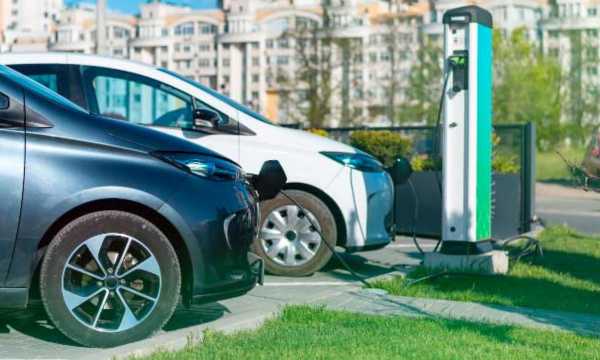Embracing the Future: 5 Advantages of Electric Cars
With the widespread use of electric vehicles, the automotive industry is undergoing a revolutionary change.
As we look for environmentally friendly alternatives to combustion engine vehicles, electric vehicles have emerged as a promising option. This article discusses five key benefits of electric cars, including how they can improve the environment, economy, and technology.
1. Impact on the Environment:
One of the biggest advantages of electric cars is that they are much better for the planet than regular cars that run on fossil fuels. Electric vehicles do not emit any pollution into the air and their exhaust fumes help clean the urban air. If we stopped using gasoline and oil, our carbon footprint would decrease and we could help combat climate change.
Best of all, electric cars naturally use less energy than cars with a combustion engine. Electric vehicles convert more of the energy from the grid into usable electricity, while conventional vehicles lose large amounts of energy in the form of heat when burning fuel. This higher level of efficiency means less energy is used overall, making the transport system greener and more sustainable.
2. Cost Savings:
While electric cars may initially cost more than regular cars, the long-term cost savings make them an excellent choice for those on a budget. There are many reasons why electric cars are much cheaper to run.
First, electricity is generally cheaper per mile than gasoline or oil. It is often cheaper to charge an electric car than to refuel it, which can save a lot of money over the life of the car. Electric cars also have fewer moving parts than regular cars, which means they cost less to maintain. Electric vehicles break down less often and require repairs less often because they have fewer worn parts. This saves the owner money on repairs and new parts.
In addition, many governments and local authorities are offering subsidies and other benefits to encourage people to buy electric vehicles. Tax credits, rebates, and lower registration fees are some examples of these benefits. They make buying an electric car more affordable for those who want to buy one.
3. Technical Improvements:
Electric vehicles are the most advanced technological advancement in the automotive industry. A key part of the electric vehicle revolution is advances in battery technology. Lithium-ion batteries have the advantages of high energy density and long driving range and have become a widely used energy source for electric vehicles.
Additionally, continued research and development in battery technology means batteries can store energy better, charge faster, and generally perform better. These improvements aren’t just good for electric cars; They are also used in other areas, such as green energy storage.
Electric cars are more than just batteries. They also have advanced software and technology that makes them safer, more efficient, and better connected. Electric vehicles are generally more efficient because they have features such as regenerative braking, which converts kinetic energy into electrical energy. In addition, many electric vehicles have advanced driver assistance systems (ADAS) and autonomous driving capabilities. This makes future transport safer and more efficient.
4. Control Your Own Energy:
Electric vehicles help make energy systems more stable and sustainable by reducing our dependence on fossil fuels, which are limited in quantity and can cause problems in international politics. The shift to electric vehicles is a way for countries to expand their energy sources and use cleaner energy sources such as renewables.
Combining electric vehicles with clean energy sources such as solar and wind power could make them better for the planet. Electric vehicle owners can use clean, renewable energy to charge their vehicles. This reduces their impact on the environment and supports a more stable energy system.
Furthermore, the fact that electric vehicle charging is decentralized allows people and communities to be more energy-independent. People can install solar panels at home and use the electricity generated by the solar panels to charge their electric cars. This makes energy networks less dependent on central networks and more decentralized and robust.
5. Reduce Noise Pollution:
Electric cars are quieter than regular cars, which means there is less noise pollution in both the city and the countryside. It runs much quieter because it doesn’t have a standard combustion engine with all the moving parts and an exhaust system.
The reduction in noise pollution has many benefits for everyone. People driving electric cars can make cities quieter and more liveable, especially in areas with high traffic and noise. In addition, the quieter operation of electric vehicles can improve the overall quality of life for people in residential areas.
Conclusion
Besides being better for the planet, electric vehicles have many other benefits, such as lower costs, better technology, no dependence on fossil fuels, and less noise pollution. As the automotive industry continues to transform, the widespread use of electric vehicles is an important step toward making transportation systems greener and more robust. Electric vehicles will become very important in the future of transportation as battery technology continues to improve, charging stations become more numerous and people become more aware of them. By taking advantage of these benefits, cars can become cleaner and more efficient, making the world a better place.
FAQs
1. Do electric cars help the world more than regular cars?
Yes, electric cars are good for the planet because they don’t release pollutants into the air. Electric vehicles help clean the air and combat climate change by reducing our dependence on fossil fuels.
2. How do electric cars save money in the long term?
While it may be more expensive to buy an electric car initially, it can save you money in the long run. They have lower operating costs because electricity is cheaper than gasoline and maintenance costs are lower. They also often receive help from the government in the form of tax credits and rebates.
3. What new technologies distinguish electric vehicles?
Especially with lithium-ion batteries, electric vehicles are showing advances in battery technology. These batteries provide a lot of power in a small package, allowing you to travel further. Electric vehicles also feature improved software, regenerative braking, and driver assistance systems, making them safer, more efficient, and easier to connect to the internet.
4. How can electric vehicles help us achieve energy independence?
By encouraging the use of green energy, electric vehicles reduce our dependence on fossil fuels, which are in short supply. When solar and wind energy are combined, electric car owners can use clean energy to charge their cars. This makes the energy network more sustainable and decentralized.
5. Do electric cars help clean the air?
Yes, electric cars are quieter than regular cars, which means they cause less noise pollution. The absence of an internal combustion engine makes traveling much quieter, especially in cities, improving the quality of life for those who live there.
6. Does the government offer discounts or benefits to people who buy an electric car?
Yes, many governments and local authorities offer subsidies and other benefits to entice people to buy electric cars. Tax breaks, rebates, and lower registration costs are some of the benefits that make electric vehicles more attractive to buyers.
 The Evolution of Electric Cars
The Evolution of Electric Cars
Electric cars, also known as EVs (Electric Vehicles), represent a revolution in automotive technology and environmental conservation. […]
More Car Buying Guides: Navigating Your Way to the Perfect Purchase
Car Buying Guides: Navigating Your Way to the Perfect Purchase
Embark on your journey to finding the ideal vehicle with comprehensive car buying guides tailored to help […]
More Electric Car Maintenance: 6 Effective Tips for Longevity and Performance
Electric Car Maintenance: 6 Effective Tips for Longevity and Performance
Electric cars are currently popular because they are better for the planet than traditional gasoline-powered cars. Electric […]
More